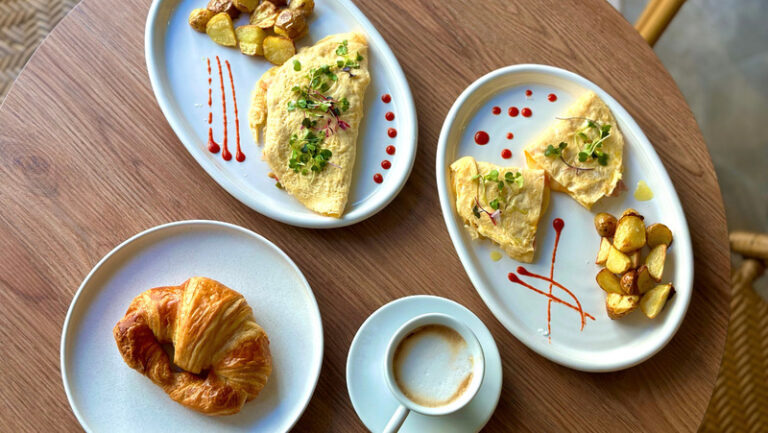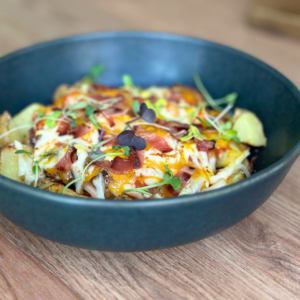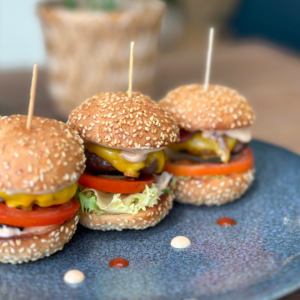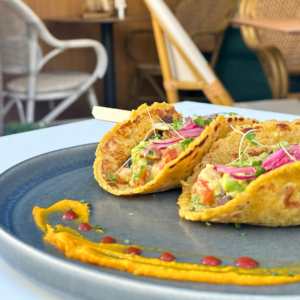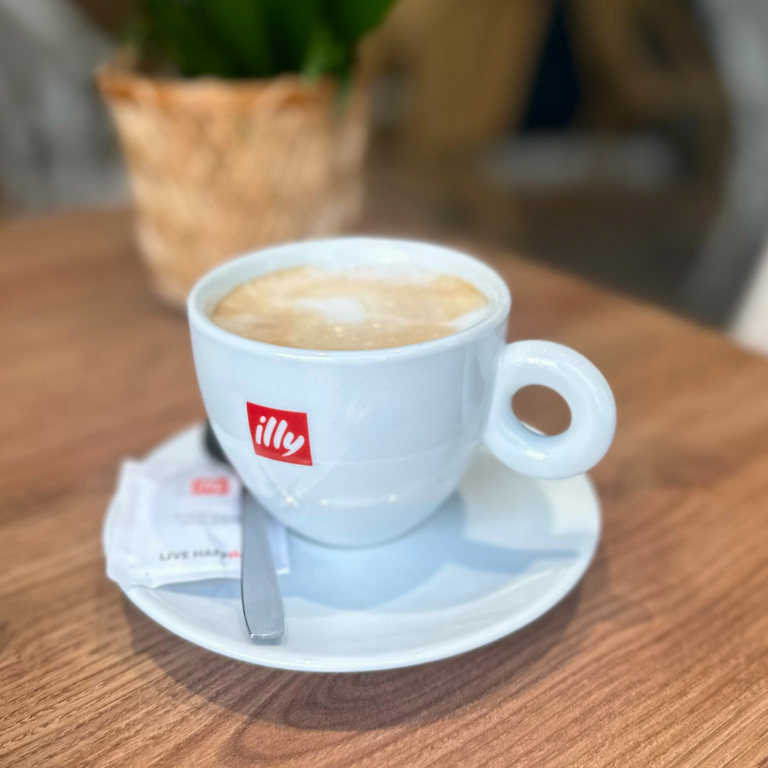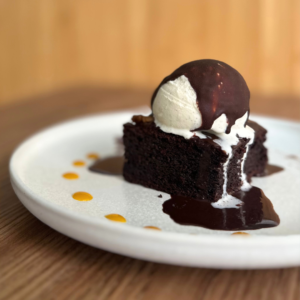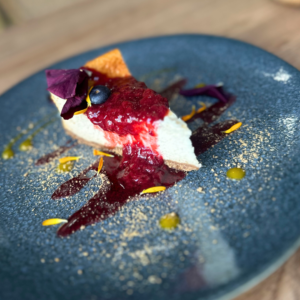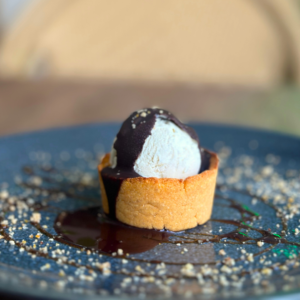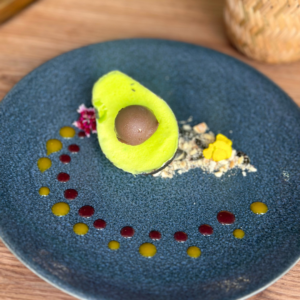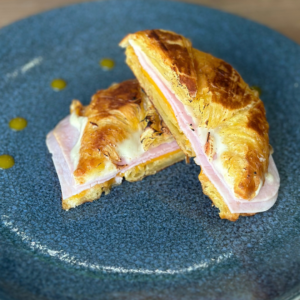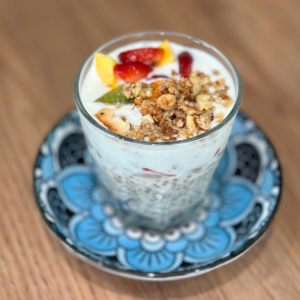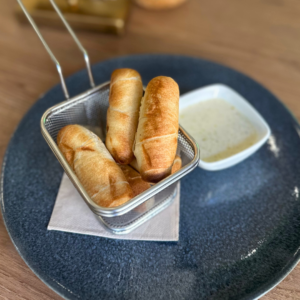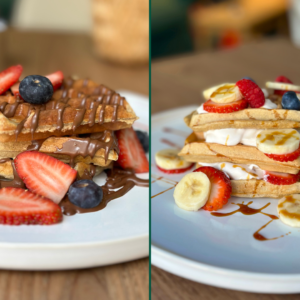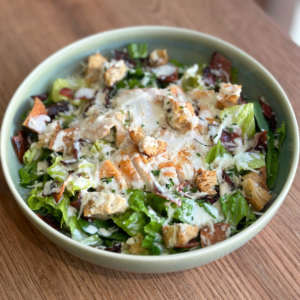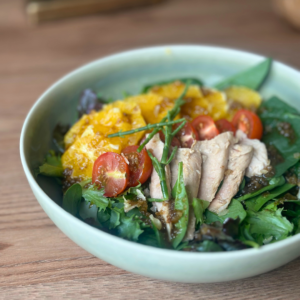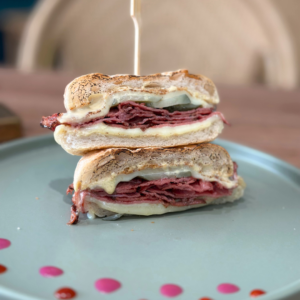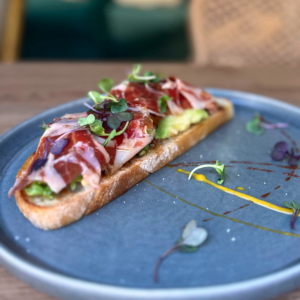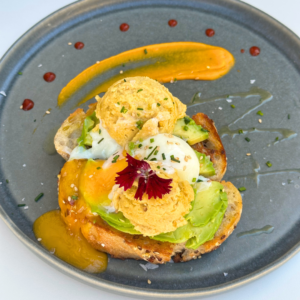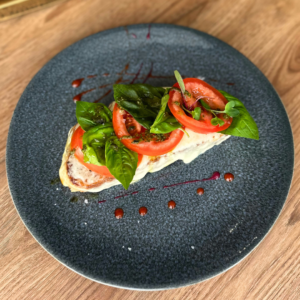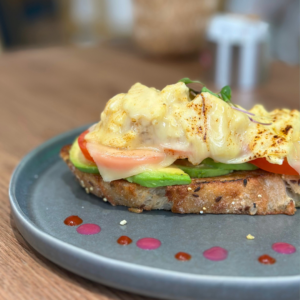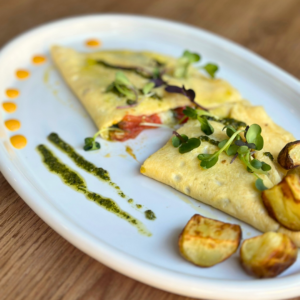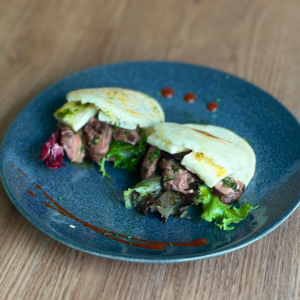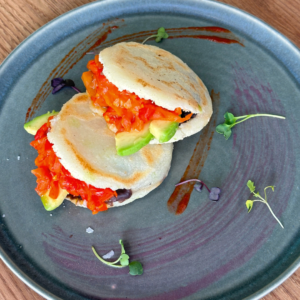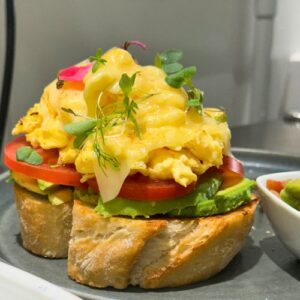Eating a proper diet is essential for everyone, but for those with coeliac disease, this becomes a daily obligation. Coeliac disease is a condition in which the consumption of gluten causes damage to the small intestine and triggers symptoms that affect health and well-being. It is therefore important to know what foods coeliacs cannot eat is key to ensuring a safe and secure diet.
At Sabor Con Encanto - Brunch & Healthy Eatingin the heart of Malaga, we understand the importance of offering gluten-free options that allow you to enjoy your meal with peace of mind. Our commitment is clear: freshness, flavour and safety so that everyone, regardless of their needs, can share in the experience of eating gluten-free. brunch.
Why should a coeliac sufferer avoid certain foods?
Coeliac disease is an autoimmune disease in which the immune system reacts negatively when a person consumes gluten. This set of proteins, present in several cereals, damages the villi in the small intestine, which are responsible for absorbing nutrients. Over time, this damage causes absorption problems, nutritional deficiencies and symptoms that can range from digestive discomfort to chronic fatigue, anaemia or weight loss.
Gluten is present in many everyday foods, even in some that we would never imagine finding it in. It is therefore essential that coeliacs follow a strict gluten-free diet throughout their lives. Avoiding these products not only improves the quality of life in the present, but also prevents health complications in the future.
Foods to avoid completely
There are certain foods that coeliacs cannot eat under any circumstances because they naturally contain gluten or because they are made from forbidden grains. These include:
Cereals containing gluten
The main ones are the wheat, barley, rye and oats (when it is not certified gluten-free). Hybrids and varieties such as spelt, kamut or triticale should also be avoided.
Wheat and wheat products and similar products
Any product made with flour from these cereals is prohibited:
- Traditional bread, buns and baguettes.
- Cakes, cupcakes, cakes and biscuits.
- Industrial bakery and home baking with wheat flour.
- Pasta such as conventional spaghetti, macaroni or tagliatelle.
Processed products
Gluten also hides in processed foods that may seem innocent:
- Sausages using flour as a binding agent.
- Prepared sauces, such as soy sauce or some instant béchamel sauces.
- Sachet soups, bouillon concentrates and bouillon cubes.
- Snacks and batter containing wheat flour.
Beverages
Not all drinks are safe. The conventional beer and malted beverages contain gluten and should therefore be avoided.
Other products
Even some medicines, vitamin supplements and herbal products include gluten as an excipient, so it is essential to always check the labelling.
Risk of cross-contamination
Although many foods are naturally gluten-free, such as rice, maize or potato, there is a risk that gluten may be present in some foods. cross-contamination. This happens when a gluten-free product comes into contact with utensils, surfaces or oils that have previously been in contact with gluten-containing foods.
For example, a piece of gluten-free toast in a toaster used for normal bread is no longer safe for a coeliac. The same applies in the kitchen when sharing cutting boards, knives or frying pans without proper cleaning. It is therefore vital to ensure that the preparation space complies with specific protocols.
At Flavour With CharmWe take care of every detail to ensure that our gluten-free dishes are prepared with all the necessary safety, avoiding any risk of cross-contamination.
Safe alternatives for coeliacs
Fortunately, the list of foods that can a coeliac eat is extensive and varied. There are many naturally gluten-free products that are part of a balanced and delicious diet:
- Fruit and vegetables in all its forms.
- Fresh meat and fishwithout batter or additives.
- Eggs, pulses and nuts and dried fruit and nutsThey are great allies in a nutritious diet.
- Tubers such as potatoes and cassavaideal to accompany dishes.
- Gluten-free cerealssuch as rice, maize, millet, amaranth, quinoa and buckwheat.
As for flours, there are many options: rice, corn, almond, chickpea, soya or coconut flour, perfect for making safe breads, desserts and batters.
Nowadays, there are also certified gluten-free versions of bread, pasta, biscuits and pastries, which allows a varied diet to be maintained without risk.
Why is it key to respect this diet?
The consumption of even small amounts of gluten can damage the intestine of a person with coeliac condition, although there are not always immediately visible symptoms. This means that an accidental ingestion, even a small one, can have long-term consequences.
Adhering to the gluten-free diet is not a matter of fashion, but of health. Strict adherence to it prevents complications such as anaemia, osteoporosis, fertility problems or even an increased risk of developing certain types of intestinal cancer.
In our restaurant, Flavour With CharmWe are aware of how important this safety is. That's why we work with certified ingredients and take care of every step in the preparation so that you can enjoy your food without worrying.
How to identify gluten-free products
Learning to identify gluten-free products is essential to maintain the correct diet:
- Read labelsall packaged products must indicate whether they contain gluten.
- Search for the gluten-free labelofficial certifications are available to guarantee their safety.
- Avoiding dubious productsWhen labelling is unclear, it is safest not to consume them.
- Prefer fresh foodFruits, vegetables, meats, fish and eggs are always safe choices if they have not been processed.
Frequently asked questions about foods that coeliacs cannot eat
Are oats forbidden for coeliacs?
Oats can only be consumed if they are certified gluten-free, as they are often contaminated during the production process.
Are ham and sausages safe?
Some do, but others include gluten-containing flours or additives. It is essential to check the labelling and always choose certified versions.
Is it enough to avoid bread and pasta?
No. Gluten can be found in sauces, broths, processed spices and even medicines. It is important to always be on the alert.
Is eliminating gluten recommended for everyone?
No. For coeliacs it is a vital necessity, but for non-coeliacs, it does not bring additional health benefits.
Where to enjoy a gluten-free brunch in Malaga?
At Sabor Con Encanto - Brunch & Healthy Eatingin Plaza Enrique García-Herrera, 8We offer a safe, fresh and tasty brunch, with gluten-free, vegetarian and vegan options for everyone to enjoy without worries.
Saber what foods coeliacs cannot eat is the first step towards a healthy and safe lifestyle. Gluten is found in many commonly consumed products, but there are also many nutritious and delicious alternatives that allow you to enjoy your food safely.
At Sabor Con Encanto - Brunch & Healthy EatingIn the heart of Malaga, we are committed to offering you a fresh and varied gluten-free brunch, where health and flavour go hand in hand. Come and visit us at Plaza Enrique García-Herrera, 8 and discover how to enjoy gastronomy without giving up anything.

